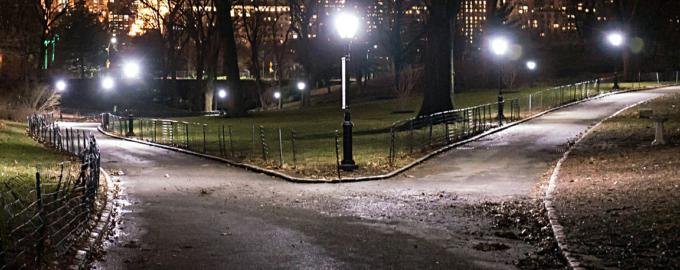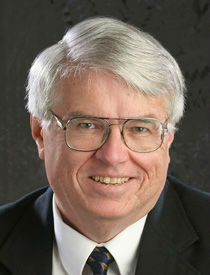
Faith
Then it becomes a habit that is nothing more, or less, than an ingrained and almost automatic response or attitude based on countless choices over a long period of time. Most often, the choice is about a small matter, but good builds on good. Virtue builds on virtue. And grace builds on grace.

Dodds
Car manuals say the dashboard's oil light may stay on for a few seconds after you start the engine. But mine had been lit up for longer than that as I sat in the driveway.
Not a lot longer. Just a little.
So I shut off the car, popped the hood and checked the dipstick.
Low.
I added a quart of oil, got back in -- now the light was on for only a short time -- and headed off.
It was a lesson I'd learned the hard way when I was a lot younger. The oil light? Yeah, what about it? Oh, may need to top up the oil. Right. I'll get to it. Later.
Before I did, the engine went bye-bye.
A few minutes and couple of dollars to add a little oil, or a big hassle and a lot of dollars for a major repair or new (used!) car.
My little choice had made a big difference.
Family life is filled with similar options. Raising children has its share of big decisions, but it's absolutely crammed with little choices. Most times a little one isn't going to tip the scale in a massive way but, over time, when little piles on little ... watch out! Or, thank God.
Some examples:
-- Rules. It's easier for children to learn what "no" means when they're 3, 4 or 5 than when they're in their early teens. And it's a lot easier for a parent to teach it when the kids are younger, too.
Hearing "no," learning to accept "no" and -- most important of all -- coming to say "no" on one's own (learning self-control and self-respect) are three ways parents help their children weather those teen years and safely reach adulthood.
-- Anger. Sometimes having a family means patience can be in short supply. That's because on occasion members are, simply put, really annoying.
It would be nice if we each had a personal dashboard with a light that glowed bright red to indicate "patience is low." Nice for us and nice for those around us. It would warn them to back off -- back off! -- and encourage us to take a deep breath, slow down and step away.
-- Kindness. We're only kidding ourselves if we think a kind temperament depends solely on how each of us is made. There may be some truth to that, but it's not the whole truth.
We can choose to be kind. To make small decisions based on kindness, day in and day out.
Then it becomes a habit that is nothing more, or less, than an ingrained and almost automatic response or attitude based on countless choices over a long period of time. Most often, the choice is about a small matter, but good builds on good. Virtue builds on virtue. And grace builds on grace.
So, as a parent, how do we get better at doing, and teaching, what leads to what's best?
Three small suggestions:
-- Say "no" to yourself when what you want to do (or feel like doing) isn't what you really want to do. It's not in the big picture.
-- Be patient with yourself as you learn to choose what's better for you and others.
-- Be kind to yourself when you make a bad choice. Odds are you'll get another opportunity, very soon.
- Bill Dodds is a columnist with the Catholic News Service.
Recent articles in the Faith & Family section
-
The Christmas crecheFather Robert M. O'Grady
-
Feeling like ChristmasJaymie Stuart Wolfe
-
Parish priests and their peopleMsgr. Frank Kelley
-
Be the carolArchbishop Richard G. Henning
-
Give a Christmas Gift to the MissionsMaureen Crowley Heil


















